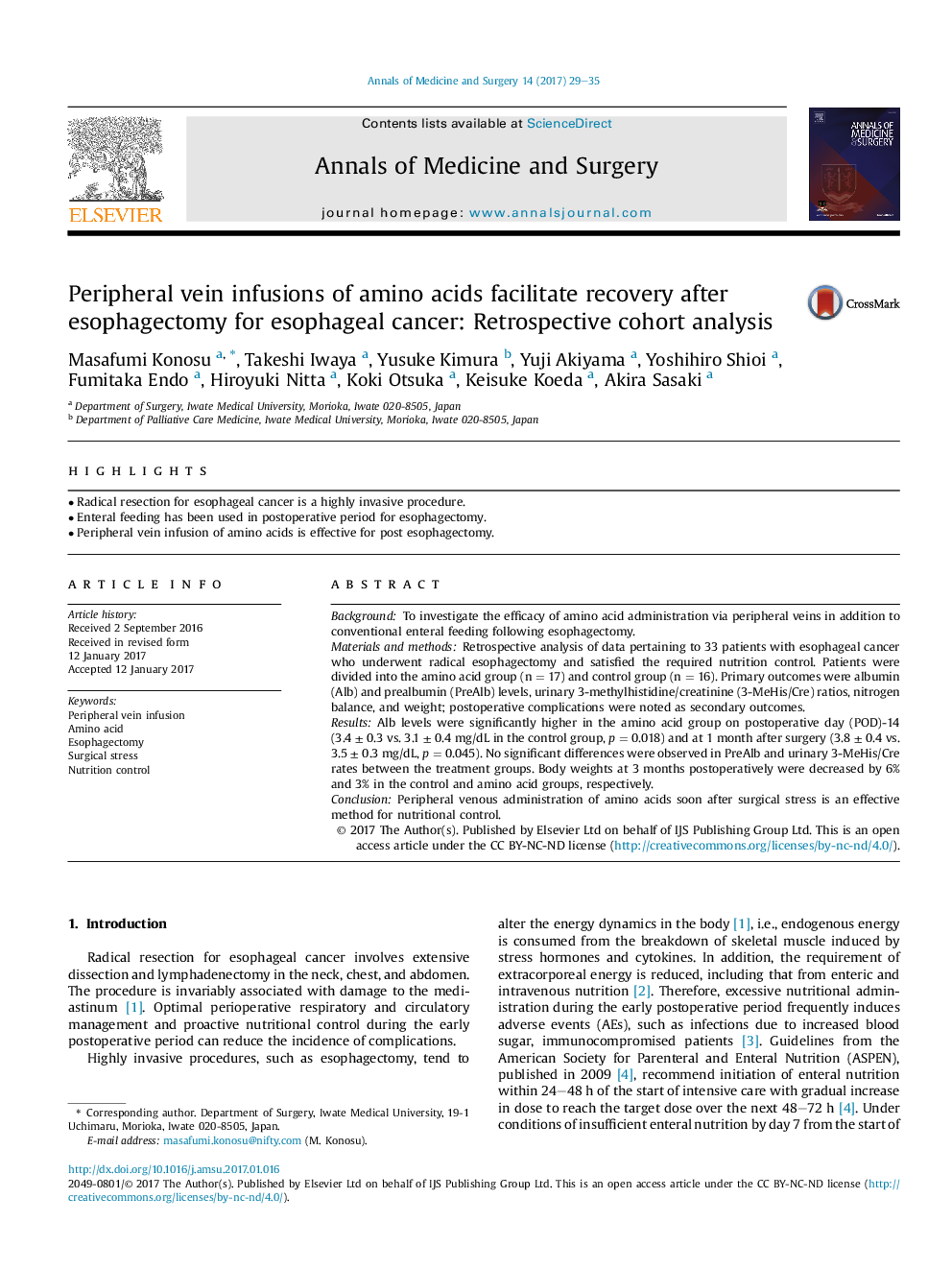| Article ID | Journal | Published Year | Pages | File Type |
|---|---|---|---|---|
| 5723103 | Annals of Medicine and Surgery | 2017 | 7 Pages |
â¢Radical resection for esophageal cancer is a highly invasive procedure.â¢Enteral feeding has been used in postoperative period for esophagectomy.â¢Peripheral vein infusion of amino acids is effective for post esophagectomy.
BackgroundTo investigate the efficacy of amino acid administration via peripheral veins in addition to conventional enteral feeding following esophagectomy.Materials and methodsRetrospective analysis of data pertaining to 33 patients with esophageal cancer who underwent radical esophagectomy and satisfied the required nutrition control. Patients were divided into the amino acid group (n = 17) and control group (n = 16). Primary outcomes were albumin (Alb) and prealbumin (PreAlb) levels, urinary 3-methylhistidine/creatinine (3-MeHis/Cre) ratios, nitrogen balance, and weight; postoperative complications were noted as secondary outcomes.ResultsAlb levels were significantly higher in the amino acid group on postoperative day (POD)-14 (3.4 ± 0.3 vs. 3.1 ± 0.4 mg/dL in the control group, p = 0.018) and at 1 month after surgery (3.8 ± 0.4 vs. 3.5 ± 0.3 mg/dL, p = 0.045). No significant differences were observed in PreAlb and urinary 3-MeHis/Cre rates between the treatment groups. Body weights at 3 months postoperatively were decreased by 6% and 3% in the control and amino acid groups, respectively.ConclusionPeripheral venous administration of amino acids soon after surgical stress is an effective method for nutritional control.
